MercoPress. South Atlantic News Agency
Environment
-
Saturday, June 5th 2021 - 09:00 UTC
Argentina creates registry for activities involving wild animals
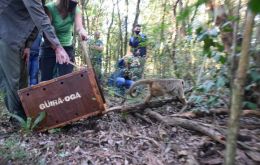
Argentina's Environment Ministry Friday created a Registry for people involved in dealings with wild animals, it was announced.
-
Saturday, June 5th 2021 - 07:46 UTC
Environment Day: UN “global call to action” to heal the Earth

Amidst the triple environmental threat of biodiversity loss, climate disruption and escalating pollution, United Nations Secretary-General António Guterres launched “an unprecedented effort to heal the Earth”, on World Environment Day, Jun 5.
-
Friday, June 4th 2021 - 09:17 UTC
Baby squid sent to the Space Station for scientific experiments

A resupply mission has reached the International Space Station (ISS) with fresh supplies for the astronauts, including new solar arrays and...for the first time ever two batches of tiny squids for a scientific experiment.
-
Thursday, June 3rd 2021 - 08:00 UTC
Record flooding in Brazil's Amazon region; half a million displace
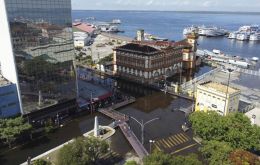
In Brazil's Amazon region the Rio Negro has swollen to levels unseen in over a century of record-keeping. More than 450,000 people have been affected state-wide. Residents in Manaus, the biggest city in Brazil's Amazon rainforest, were struggling to cope with severe flooding after heavy rain caused nearby rivers to swell.
-
Thursday, June 3rd 2021 - 07:32 UTC
June 3, we celebrate World Bicycle Day

Today June 3 we celebrate World Bicycle Day on June 3. A United Nations designated day, World Bicycle Day is observed as cycling has tremendous health benefits for all age groups, according to experts.
-
Wednesday, June 2nd 2021 - 05:20 UTC
HMS Protector equipped with drones for polar extreme missions
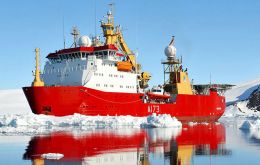
Royal Navy’s Ice Patrol Ship HMS Protector has been assigned two small rotary-wing drones, specially adapted for her unique mission in the polar extremes. Although the Devonport-based survey ship has a large flight deck, with no hangar she cannot take helicopters with her – unlike her predecessor HMS Endurance, which carried two Lynx.
-
Monday, May 31st 2021 - 08:47 UTC
Clean energy summit ready to start virtually in Santiago, Chile
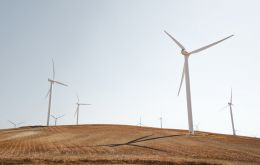
The Global Clean Energy Summit is to be held for the first time in Latin America and it is due to span from Monday, May 31, through Friday, June 4 in Santiago, Chile, albeit in a virtual format.
-
Saturday, May 29th 2021 - 08:41 UTC
Brazil threatened by shortages in electricity supply due to water emergency
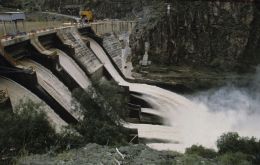
Brazil's Electric Sector Monitoring Committee Thursday issued a “water risk” warning and the Federal Government undertook a series of measures to avoid energy rationing until October, a period of low rainfall and more severe drought in the southeast and midwest, it was announced.
-
Saturday, May 29th 2021 - 03:39 UTC
IAATO Welcomes New Executive Committee Chair

The International Association of Antarctica Tour Operators (IAATO) has appointed Executive Committee member Robyn Woodhead to its top spot during this year’s online annual meeting, according to a press release. Woodhead joined the committee in 2017, having been an active member of the organization since 2010.
-
Friday, May 28th 2021 - 02:10 UTC
Farmers beware: Climate activist Greta Thunberg targets food production and consumption

Swedish climate activist Greta Thunberg has set her sights on changing how the world produces and consumes food in order to counteract: carbon emissions, disease outbreaks, and animal suffering.
